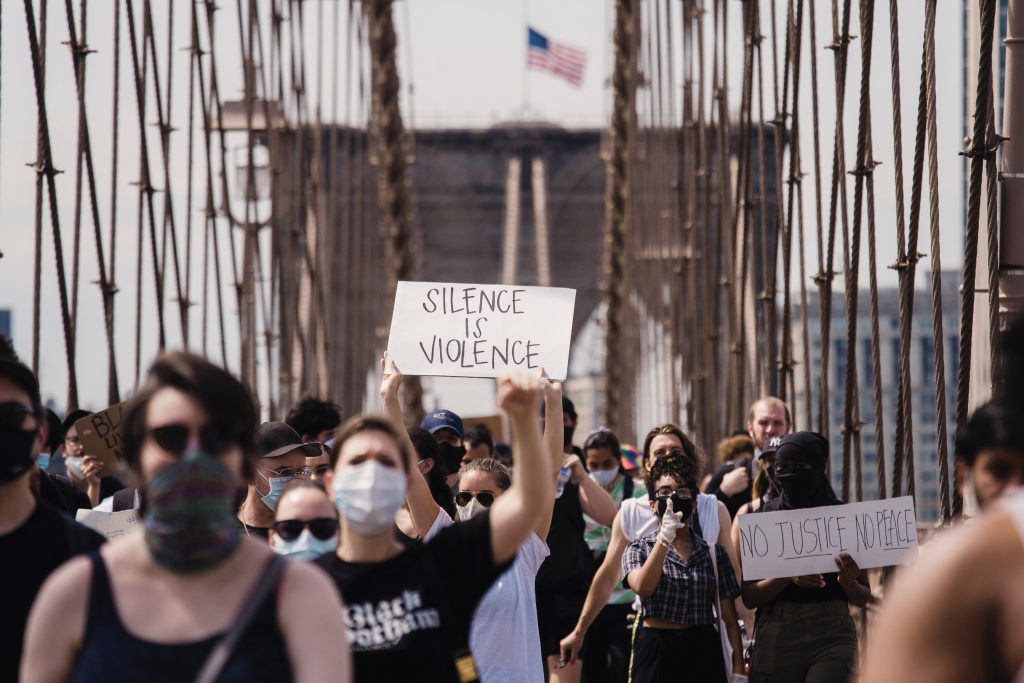
In the latest Voqal DEI spotlight, Mary Coleman examines her privilege and the need to leverage it to address structural racism during the current pandemics.
Recently, in a group meeting, a question was posed: how are we doing amidst the COVID-19 and structural racism pandemics? My first reaction was “awful.” I feel awful every day, knowing suffering exists for those dealing with these pandemics, while any action on my part seems insignificant in addressing the causes that led to this moment or the symptoms manifesting in real-time.
Then a realization dawned on me. The ground-level suffering I felt awful about was not my own. If I were to answer this question based on my own positioning, not the emotions I am feeling, my response would have to be: “I’m coasting.”
As of this writing, no one in my family has been adversely affected by COVID-19, and the attempts to contain the virus. No one has been deathly ill, laid off, or unable to pay rent and other basic needs. My day-to-day has certainly changed since early March. I work from home full-time and wear a mask when I do go out. But my year-to-year has not changed. I have a stable income, housing, and food access. My partner and I are revising 2020 travel plans, but otherwise, our situation looks uncannily like July 2019.
In regards to the more pervasive and invasive structural racism pandemic, I am white, of Western European descent, so experiencing and understanding systemic racism is very different for me than those who identify as non-white living in the United States. This would be true at any point in modern history but is especially so since the COVID-19 pandemic roared to life. The Centers for Disease Control and Prevention has a brief but thorough overview of why the health pandemic intersects with systemic racism to produce and perpetuate inequities.
Being someone in my position, with class and race privilege, I must find it within myself to make change and disruption a priority. If not, while I could continue to coast through life, I would do so knowing this reality is currently at the expense of others. In college, I took a moral philosophy course and was exposed to a premise that stuck with me. If you had the opportunity to design a world that you would one day populate, but you did not know where you would be dropped into that world, how would you design it?
This is basically life as we know it, with each of us randomly assigned a role. The difference between this philosophy and reality is that we did not have a say in designing how the world was when we came to exist. We can, though, be a part of designing what it can be for those living and to come. Recently this concept has taken on a deeper meaning, propelling me forward when uncertainty, hopelessness, or deflation rear their heads.
This moment – relative to time and circumstance – of facing and reckoning with the past so the future is not a replica is not necessarily unique for any living population, but the tools, knowledge, and wealth available to us now does open the door for the unique opportunity to bring change and disruption. Now is not the time for anyone living in the United States to back away or coast, but to work to build, not just dream about, the future.
Rather than giving in to feeling awful, this is the time to lean into privilege and leverage it to contribute to the construction of the world I want to live in. Because this is not it. I recently listened to a 2020 TED Talk by Chloé Valdary about addressing modern ills from a place of love, framing them within pop culture references. One such example was from Moana, a Disney movie with a backstory about a joyful, loving persona being changed into an angry, hateful one when its “heart” is taken. Valdary reflected that “if you remove love, if you remove nurture from us, we tend to descend into a rage.”
From reactions to public health recommendations and the Black Lives Matter movement and the hypocrisies they reveal, it is clear we as a population have lost some of that heart and compassion within ourselves. I see rage and anger all around; most of it is justified, some of it is misplaced, but all of it is destructive.
This is not about “becoming woke,” but about following Maya Angelou’s advice of doing better when one knows better. As life and its lessons unfold for me, I will always strive to do and be better. I implore those who also entered this world in a fortunate position to remember it is not about removing you from that place of power but rather expanding the platform so more can join.
Privilege is a terrible thing to waste.